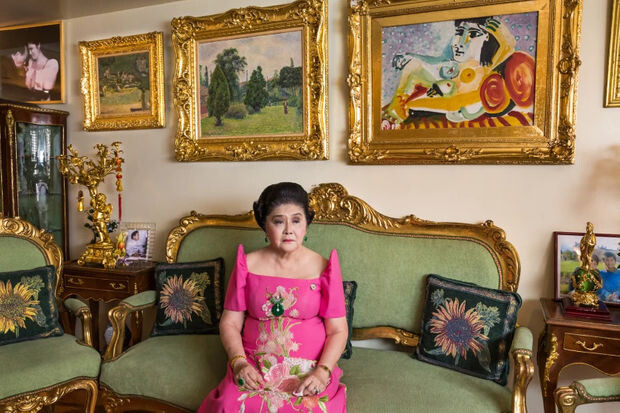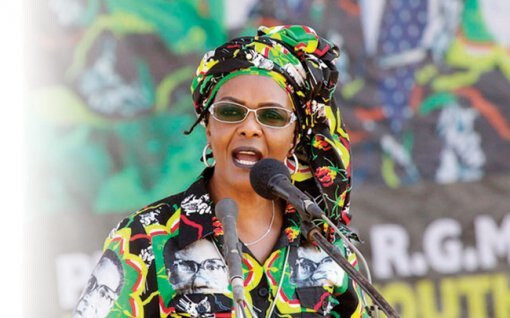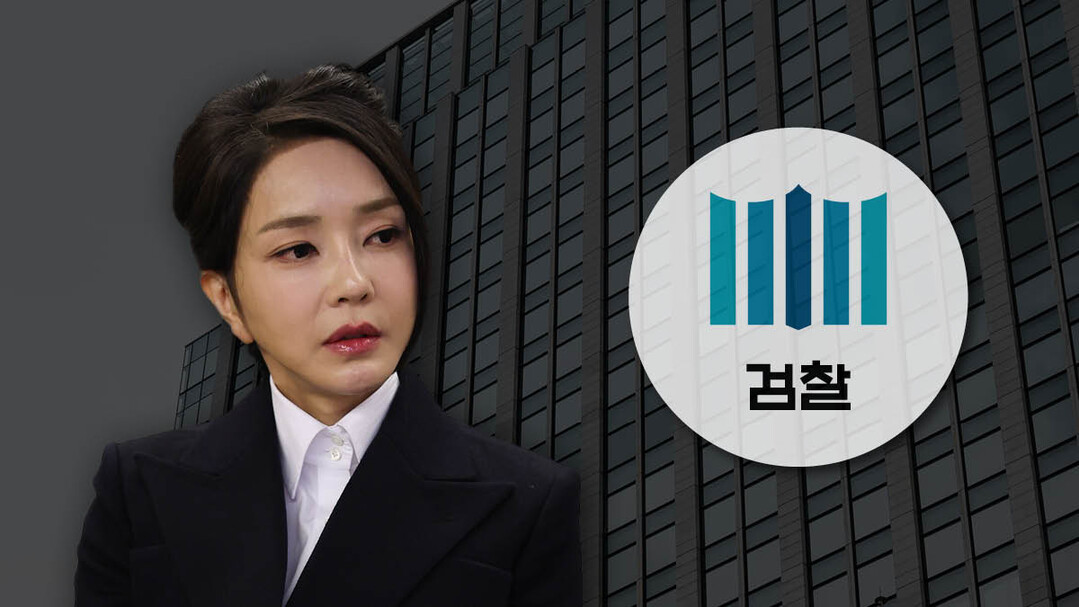
In February 1986, millions of Filipinos, angered by the fraudulent elections of the Marcos dictatorship, flooded into 'Edsa', a major highway in the capital city of Manila. The government troops, which had been propping up the regime, joined the pro-democracy movement. When Marcos finally realized the reality of the situation, he fled to Hawaii from the Malacañang Presidential Palace, where he had been holding his own inauguration ceremony. This was the culmination of the 'People Power' revolution.
What angered the people as much as the fraudulent elections were the luxury goods that Marcos's wife, Imelda, had failed to pack. In a large room in the basement of the Malacañang Palace, 3,000 pairs of shoes adorned with gold, silver, and diamonds, thousands of handbags with their price tags still attached, and 3,500 pairs of designer panties were discovered. In her bathroom, a sink made of 100% pure gold, and in her bedroom, a statue of Imelda made of gold were found. Imelda thus became a symbol of extravagance, a legend of luxury forever etched in history, and a corrupt first lady who sated her greed with the people's tax money.

Grace Mugabe, the wife of Zimbabwean dictator Robert Mugabe, was also a greedy first lady known as "Africa's Imelda." While the people were starving, she used tax money to build a palace-like home and indulged in luxury shopping, particularly for Gucci, earning her the nickname "Gucci Grace." She spent 5 billion won (approximately 3.7 million USD) in tax money to hold a lavish wedding for her daughter. When it became difficult to buy luxury goods because the country was in debt, she sold elephants, lions, and giraffes from the national zoo to China. After her husband was ousted from power after 37 years, her falsified academic credentials were also exposed. She had received a Ph.D. in sociology from the University of Zimbabwe, where her husband was the chancellor, without attending a single lecture.
Elena Ceaușescu, the wife of Romanian dictator Nicolae Ceaușescu, was a first lady of complete fabrication. Although she had only an elementary school education, she used her experience as a chemical lab assistant to become a full-time researcher at the National Chemical Research Institute. When her husband came to power, she became the director of the Chemical Research Institute and the chair of the National Education Commission, manipulating the scientific community. She had her name listed as the first author on over 100 papers written by other scientists and had them published in renowned international scientific journals. However, her academic inferiority complex never seemed to fade, as she even lobbied various countries to receive a Nobel Prize. After making the outrageous statement that "the people are insects," Elena was executed by firing squad along with her husband. Hundreds of Dior and Hermès handbags, fur coats, and diamond shoes were found in her lavish home.
A high-priced painting by artist Lee U-fan has been added to the list of luxury items that former South Korean President Yoon Suk Yeol's wife, Kim Keon-hee, is suspected of having received, following allegations of designer bags and diamond necklaces. Imelda's bejeweled shoes, Grace's beloved Gucci, and Elena's fake degrees—the names are different, but the common thread is one: when a first lady craves wealth, the people are ultimately the biggest victims. Kim Keon-hee had promised, just before the presidential election, to "focus only on the role of a wife if my husband becomes president." However, the list of luxury items suggests that she never had any intention of keeping that promise.

The Perilous Price of Power: When First Ladies' Greed Harms the Nation
For centuries, the role of a first lady has been a subject of public fascination and scrutiny. While many have used their platform to champion worthy causes and serve their countries with grace, a recurring narrative across different cultures and eras reveals a darker, more insidious pattern: the abuse of power for personal enrichment. This phenomenon, which has been brought to light by scandals involving figures like Imelda Marcos, Grace Mugabe, and Elena Ceaușescu, serves as a stark reminder that when a first lady's ambition turns to greed, the real victims are the very people she is meant to serve.
Imelda Marcos, the former First Lady of the Philippines, remains the quintessential symbol of this extravagance. Her notorious collection of thousands of shoes, designer bags, and opulent jewelry, discovered after the Marcos regime was toppled by the "People Power" revolution, was a brutal visual of her disregard for the suffering of her countrymen. Her insatiable appetite for luxury, funded by the national treasury, sparked public outrage and became a key catalyst for the uprising. Similarly, Grace Mugabe, the wife of Zimbabwean dictator Robert Mugabe, earned the moniker "Gucci Grace" for her extravagant spending habits, which stood in stark contrast to the widespread poverty and starvation in her country. Her actions, from using public funds for her daughter's lavish wedding to selling off national wildlife to fuel her shopping sprees, exposed a deep-seated corruption that ultimately contributed to her husband's downfall.
Beyond the purely financial, some first ladies have also used their position to build a facade of intellectual legitimacy. Elena Ceaușescu, the wife of Romanian dictator Nicolae Ceaușescu, is a prime example. Despite having only an elementary school education, she used her husband's position to secure prestigious scientific roles and even falsified her academic credentials, presenting herself as a brilliant scientist. She had her name attached to hundreds of scientific papers she had not written, all in an attempt to earn the Nobel Prize. Her greed for intellectual recognition, much like Imelda's for material wealth, was a form of fraud perpetrated against the public, creating a false narrative that obscured the true nature of her and her husband's corrupt rule.

The allure of power and wealth seems to be a dangerous, repetitive temptation for some spouses of leaders, and the consequences are almost always dire. The recent allegations surrounding Kim Keon-hee, the wife of former South Korean President Yoon Suk Yeol, echo these historical patterns. From designer bags and diamond necklaces to a high-priced painting, the list of alleged gifts she received has raised serious questions about her promise to focus solely on her role as a wife. While the scale of the alleged corruption may differ, the underlying principle remains the same: the acceptance of expensive gifts and the pursuit of personal luxury, especially while a nation faces economic hardship, erodes public trust and creates a perception of moral decay at the highest levels of government.
The stories of these first ladies are not just tales of individual greed; they are cautionary narratives about the corrosive effect of unchecked power and the betrayal of public trust. They serve as a powerful reminder that the true measure of a leader's character is not just in their own actions, but in the conduct of those closest to them. The repeated nature of these scandals suggests a fundamental flaw in the systems that allow such behavior to flourish, and a collective failure to hold those in power accountable. As history has shown, the greatest price of such luxury is paid by the very people who are meant to be served.
[Copyright (c) Global Economic Times. All Rights Reserved.]






























